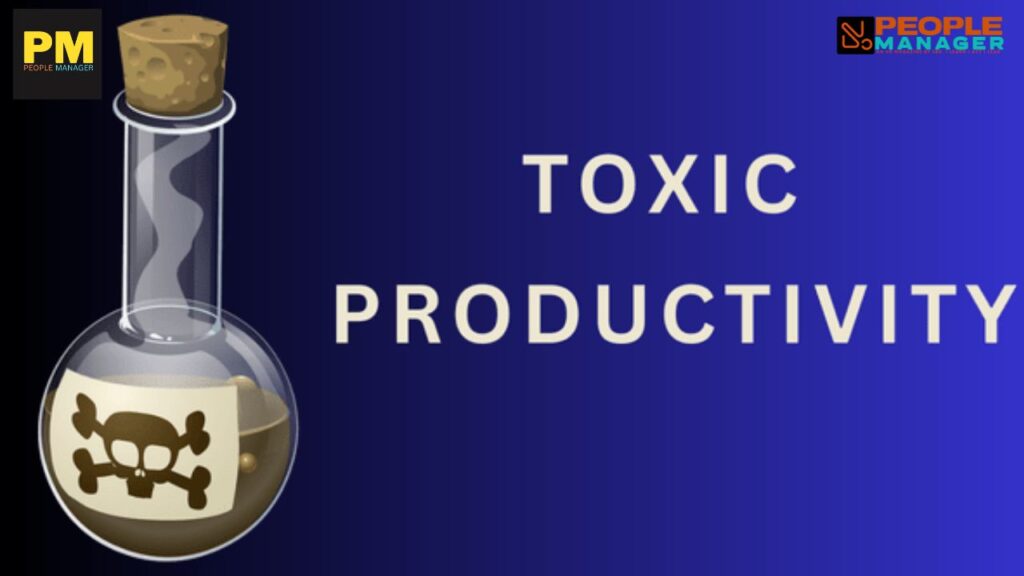Toxic Productivity- the harmful side of being productive!
One of the most serious issues with toxic productivity is that it fosters a culture in which overworking is the norm. This can have a number of negative repercussions, including diminished job satisfaction, a lack of work-life balance, and even physical health issues like heart disease and stroke.

Toxic Productivity- the harmful side of being productive!
Productivity is a measure of performance, advancement, and success in the workplace. However, being productive at all times can be harmful and toxic to a human being at work. This post attempts to address the Toxic Productivity, an undiscovered and gloomy truth of being productive at work.
Productivity is frequently lauded as the ultimate objective in today’s fast-paced environment. Employees are continuously assaulted with messages telling them that they must be more productive, work harder and longer hours, and accomplish more in less time. However, while productivity can be a positive force, it can also have a negative side effect. This is referred to as poisonous productivity.
Toxic productivity is the view that productivity is the primary measure of worth and that in order to be successful or happy, one must always work and achieve. This way of thinking can lead to burnout, stress, and even physical and mental health issues.
Know the Toxic Productivity signs?
Udbhav Ganjoo, head of HR, global operations at Viatris, explains the signs of toxic productivity and how to spot someone who is productive to hazardous levels. “Such people will forego personal time, hobbies, and free time in order to be constantly busy, and they will equate their self-worth with productivity.” They will be plagued by guilt or anxiety while on vacation or enjoying a break. They may overwork themselves to the point of complete exhaustion.
Ganjoo believes, “It is crucial to prioritize and recognize that work should not be done at the expense of one’s well-being, both mental and physical. Employees, who have experienced burnout in the past due to toxic productivity, should seek their employer’s or boss’ help to raise an alarm at the first warning signs of overwork or neglect of their own health and well-being.“
What can be the Harmful effects of toxic productivity?
One of the most serious issues with toxic productivity is that it fosters a culture in which overworking is the norm. This can have a number of negative repercussions, including diminished job satisfaction, a lack of work-life balance, and even physical health issues like heart disease and stroke.
Another issue with poisonous productivity is that it frequently results in a limited concentration on production at the expense of other vital variables like creativity, social interaction, and relaxation. This, in turn, can lead to a lack of balance in life, which can have a detrimental impact on mental and emotional well-being.
“The effects of toxic productivity are not limited to the workplace,” argues Jaikrishna B, group head – HR, Amara Raja Group, in his dialogue. They can also affect personal relationships, as people may become irritated, distant, and unable to connect with others as a result of continual pressure to be productive. Personal connections may suffer as a result, leading to feelings of isolation, loneliness, and even abuse.”
Know How you can avoid toxic productivity?
One critical step is to move the emphasis away from productivity and towards total well-being. This includes paying attention to all aspects of life, such as physical health, emotional well-being, and social ties.
Ganjoo emphasises in his statement that it is critical for individuals to set realistic goals, allow themselves to rest and take breaks, and seek help from family and friends when needed to avoid burnout and maintain a healthy work-life balance.
“It’s also important for employers and managers to prioritise their employees’ well-being and ensure a healthy work environment that promotes work-life balance,” he says. Employees should strive to reach their objectives, but they should also recognise that it is OK to take pauses, ask for assistance, and care for themselves.
Ganjoo goes on to say that people might use a variety of tactics to avoid toxic productivity. Prioritising self-care by engaging in activities that enhance physical and mental well-being, such as exercise, meditation, and spending time with loved ones, is one such technique.
In his remark, Jaikrishna B proposes attacking the issue from both the individual and organisational levels. Employers must develop a work culture that promotes employee well-being and recognises the need of work-life balance at the organisational level.
“CHROs and managers must ensure that employees are not overburdened with work and that their workload is manageable,” he recommends. It is also critical to give employees with resources and support to assist them in managing stress and maintaining their mental health.
Employees must pay attention to their mental health and conduct self-care on an individual basis. Taking breaks, setting boundaries, and indulging in things that offer joy and relaxation are all examples of this. It is also critical to seek assistance and support when necessary, whether from a mental health professional, a friend, or a family member.
Productivity can be a beneficial force in people’s life, but employees must be wary of poisonous productivity. Employees can prevent toxic productivity from wrecking their life and hurting their health and happiness by concentrating on their own overall well-being, setting reasonable expectations, and appreciating their natural value as human beings.
- SHe-Box Portal Pushes Companies to Take Workplace Harassment Complaints Seriously: 2025 Report - February 16, 2026
- India’s Labour Codes Are Redrawing the Hiring Map- Tier III & IV Cities Emerge as the New Growth Engines: Report - February 11, 2026
- Girish Ramadurgam on Talent-Fitment” Problem: How to resolve the skill mismatch - January 19, 2026









